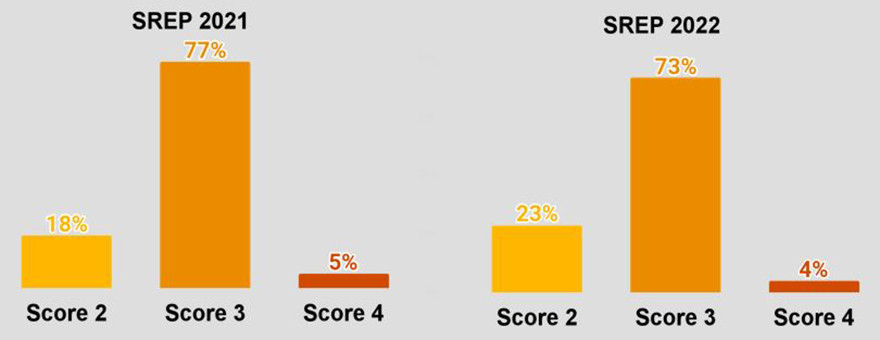ECB Launches Task Force To Modernize Banking Regulations

Table of Contents
The European Central Bank (ECB) plays a pivotal role in overseeing the stability and integrity of the European banking system. Its responsibilities extend to monetary policy, banking supervision, and the overall health of the Eurozone's financial infrastructure. The newly formed task force directly addresses the limitations of the current regulatory framework in effectively managing contemporary challenges. Its primary objective is to modernize banking regulations, making them more fit for purpose in the 21st century.
Addressing the Challenges of the Modern Banking Landscape
The modern banking sector faces a complex web of challenges that necessitate a significant update to existing regulations. Outdated rules struggle to keep pace with rapid technological advancements and evolving risk profiles. These regulatory hurdles stifle innovation and hinder the ability of banks to effectively manage emerging threats.
- Increased competition from fintech companies: The rise of innovative fintech firms is disrupting traditional banking models, demanding a more agile and responsive regulatory environment.
- Growing cybersecurity risks and data breaches: The increasing sophistication of cyberattacks poses significant risks to the stability of the banking system, requiring robust cybersecurity regulations.
- The need for sustainable finance and climate risk management: The global focus on environmental, social, and governance (ESG) factors demands a regulatory framework that integrates climate risk management and promotes sustainable banking practices.
- Evolving customer expectations and digitalization: Consumers are increasingly demanding digital-first banking services, requiring regulations that support digital transformation in banking while maintaining consumer protection.
The current regulatory framework often lags behind these developments, creating a mismatch between the realities of the modern banking landscape and the rules designed to govern it. This gap needs to be bridged to ensure the long-term stability and competitiveness of European banks.
Key Objectives of the ECB's Task Force
The ECB's task force has several key objectives aimed at modernizing the regulatory landscape and fostering a more resilient and innovative banking sector. These objectives are designed to address the challenges outlined above and pave the way for a future-proof regulatory framework.
- Streamlining the regulatory framework for banks: Reducing complexity and unnecessary burdens on banks through simplification and harmonization of regulations.
- Improving the clarity and efficiency of existing regulations: Ensuring that regulations are easily understood and implemented by banks, reducing ambiguity and potential for inconsistencies.
- Enhancing supervisory practices to address new risks: Developing more effective methods for identifying and managing emerging risks, such as those related to cybersecurity and climate change.
- Promoting innovation and competition in the banking sector: Creating a regulatory environment that encourages innovation while maintaining financial stability and protecting consumers.
- Integrating environmental, social, and governance (ESG) factors into banking regulations: Promoting sustainable banking practices and ensuring that banks adequately address climate-related risks.
Composition and Scope of the Task Force
The ECB's task force comprises a diverse group of experts drawn from various backgrounds and institutions. Members include representatives from the ECB itself, national central banks across the Eurozone, and potentially external experts with specialized knowledge in banking regulation and related fields. This expert panel brings a wealth of experience and diverse perspectives to the table.
The scope of the task force's work is extensive, encompassing several key areas of banking regulation. This includes a review of capital requirements, liquidity rules, and conduct of business rules. The timeline for completing this work is yet to be fully disclosed, but the task force is expected to deliver its recommendations within a reasonable timeframe. The ultimate aim is to deliver significant regulatory reform within the Eurozone banking supervision framework.
Potential Impacts of the Modernized Regulations
The modernization of banking regulations promises several potential positive impacts on the Eurozone's financial landscape. A more robust and adaptable regulatory framework will contribute to increased stability and efficiency within the banking sector.
- Increased financial stability within the Eurozone: Modern regulations will help banks better manage risks, reducing the likelihood of financial crises.
- Reduced compliance costs for banks: Streamlined and clarified regulations will lessen the administrative burden on banks.
- Improved risk management practices: Enhanced supervisory practices will help banks identify and manage emerging risks more effectively.
- Greater resilience to economic shocks: A more resilient banking system will be better equipped to withstand economic downturns.
- Enhanced customer protection: Modernized regulations will help to protect consumers from financial harm.
However, it’s crucial to acknowledge the potential for unintended consequences. The implementation of new regulations requires careful consideration and a phased approach to minimize disruption and ensure a smooth transition for banks.
Conclusion: The Future of Banking Regulation in the Eurozone
The ECB's initiative to modernize banking regulations is a crucial step towards creating a more resilient, innovative, and sustainable banking sector in the Eurozone. The task force's work addresses critical challenges such as fintech disruption, cybersecurity threats, and the need for sustainable finance. The potential positive impacts, including increased stability, reduced compliance costs, and improved risk management, are significant. By streamlining regulations, enhancing clarity, and promoting innovation, the ECB aims to shape the future of banking in the Eurozone.
To stay informed about the progress of this crucial initiative and the implementation of modernized banking regulations, follow the ECB's efforts to modernize banking regulations and learn more about the impact of the ECB's task force on banking regulations. The modernization of the regulatory framework is not merely a technical exercise; it is a vital step in ensuring the continued health and stability of the Eurozone's financial system.

Featured Posts
-
 Wta Finals 2024 Austria And Singapore Battle For Glory
Apr 27, 2025
Wta Finals 2024 Austria And Singapore Battle For Glory
Apr 27, 2025 -
 Assessing The Weakness In Private Credit Before Recent Events Credit Weekly
Apr 27, 2025
Assessing The Weakness In Private Credit Before Recent Events Credit Weekly
Apr 27, 2025 -
 Price Gouging Allegations Surface After La Fires A Selling Sunset Perspective
Apr 27, 2025
Price Gouging Allegations Surface After La Fires A Selling Sunset Perspective
Apr 27, 2025 -
 Improved Banking Regulation Ecbs New Task Force In Action
Apr 27, 2025
Improved Banking Regulation Ecbs New Task Force In Action
Apr 27, 2025 -
 Update World No 1 Sinners Doping Allegations Settled
Apr 27, 2025
Update World No 1 Sinners Doping Allegations Settled
Apr 27, 2025
